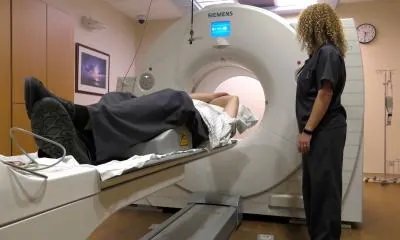
Germany's Push for Early Alzheimer Diagnosis: Are We Ready?
2025-04-03
Author: Yu
Introduction
A groundbreaking survey is set to examine whether Germany's memory clinics and medical specialists are prepared to embrace biomarker-based diagnostics for Alzheimer’s disease (AD). This innovative approach holds promise for early detection and possibly modifying the course of the disease, a crucial step as the nation grapples with an aging population increasingly affected by dementia.
Current State of Biomarker Diagnostics
Despite the recognized efficacy of biomarkers, such as PET scans and cerebrospinal fluid (CSF) analyses, their deployment in everyday clinical settings is still disappointingly limited. The survey, which will conclude data collection by the end of 2024, aims to gather vital insights from directors of memory clinics, neurologists, and psychiatrists about their current diagnostic processes, their attitudes toward these advanced tools, and the infrastructure needed for successful integration into practice.
Research Overview
This research was unveiled at the prestigious 2025 International Conference on Alzheimer’s and Parkinson’s Disease (AD/PD) from April 1-5 in Vienna. Lead researcher Stefanie Köhler from the German Center for Neurodegenerative Diseases discussed how the study will employ an online survey distributed in phases. Initially targeting 210 memory clinic directors throughout Germany, the survey will subsequently reach neurologists and psychiatrists in private practice. Key areas of investigation include sociodemographic details, current practices related to biomarker-based diagnostics, and attitudes toward the latest antibody treatments.
Expected Outcomes
Anticipated results, to be analyzed in early 2025, are expected to shed light on barriers faced in adopting biomarker-driven diagnostics. It’s believed that while medical professionals grasp the significance of early AD detection, there’s still a notable shortfall in the routine implementation of critical tests like lumbar punctures and MRI scans used for diagnostic verification. Identifying these gaps is imperative to enhance Germany’s healthcare system, especially considering the growing need for early intervention strategies as our population ages.
Additional Studies
Additionally, the conference showcased another innovative study, re.cogni.ze, which evaluated a digital self-assessment tool, neotivCare, aimed at remote cognitive testing. The study highlighted the potential of these digital solutions to complement traditional diagnostics, allowing specialists to identify cognitive decline both earlier and more effectively.
Study Findings
Conducted across various healthcare settings, including 27 psychiatrist and neurologist offices, three memory clinics, and 13 general practitioners, the research found that 574 out of 765 patient invitations were accepted. Impressively, 93% of participants completed a comprehensive 12-week assessment and engaged in discussions about their results with doctors. Alarmingly, results indicated that 40% of those assessed scored below the established threshold for mild cognitive impairment (MCI). Both patients and physicians praised the user-friendly nature of the app, with 71% expressing satisfaction and 80% of doctors acknowledging its added value.
Conclusion
The promising results from these studies indicate a significant shift towards integrating advanced diagnostic tools in routine Alzheimer’s care, but as we look to the future, will Germany fully embrace these revolutionary changes? The path toward early diagnosis and improved care for Alzheimer’s patients is fraught with challenges, but the commitment to advancing medical practices holds the potential for brighter days ahead.
Stay Tuned
Stay tuned for updates on this urgent healthcare narrative and more breakthroughs from the 2025 AD/PD Conference!




 Brasil (PT)
Brasil (PT)
 Canada (EN)
Canada (EN)
 Chile (ES)
Chile (ES)
 Česko (CS)
Česko (CS)
 대한민국 (KO)
대한민국 (KO)
 España (ES)
España (ES)
 France (FR)
France (FR)
 Hong Kong (EN)
Hong Kong (EN)
 Italia (IT)
Italia (IT)
 日本 (JA)
日本 (JA)
 Magyarország (HU)
Magyarország (HU)
 Norge (NO)
Norge (NO)
 Polska (PL)
Polska (PL)
 Schweiz (DE)
Schweiz (DE)
 Singapore (EN)
Singapore (EN)
 Sverige (SV)
Sverige (SV)
 Suomi (FI)
Suomi (FI)
 Türkiye (TR)
Türkiye (TR)
 الإمارات العربية المتحدة (AR)
الإمارات العربية المتحدة (AR)